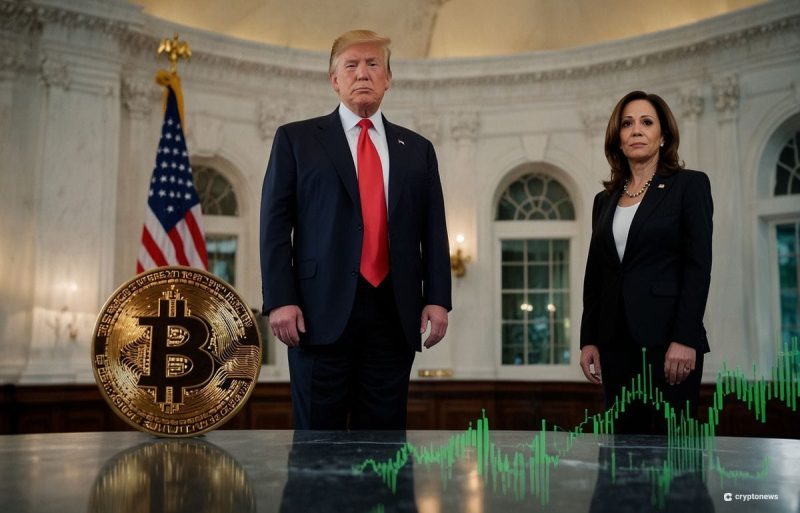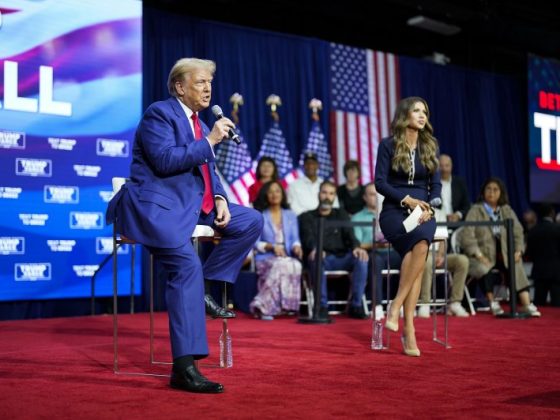While the Trump vs Harris presidential race has become a focal point for the cryptocurrency industry, BlackRock CEO Larry Fink considers it inconsequential to Bitcoin’s long-term trajectory.
During a BlackRock Q3 earnings call on October 15, Fink noted that the 2024 U.S. election outcome may not significantly impact Bitcoin. He expressed uncertainty that “either President or other candidate would make a difference.”
Instead, he cited Bitcoin as an “asset class in itself” that could transcend global politics. Rather than a function of regulation, he noted continued crypto adoption to hinge on liquidity and transparency.
Instead, Fink emphasized Bitcoin as an “asset class in itself” capable of transcending global politics. Rather than a function of regulation, he noted that the continued adoption of crypto hinges on liquidity and transparency.
“If we create more accessibility, more transparency, more analytics related to these assets, then it will expand,” Fink added.
This perspective underpins his belief that “the utilization of digital assets is going to become more and more of a reality worldwide,” regardless of jurisdiction.
Trump Leads on Polymaket: Does it Even Matter?
This comes as former president Donald Trump affirms his position as the favored candidate, with a 16% lead on polymarket.
U.S. Presidential Election Odds, Trump lead. Source: Polymarket.Trump is generally seen as a more innovation-friendly candidate for the crypto industry, advocating to make the U.S. the global “crypto capital” if re-elected.
Recently, Trump announced plans to launch his own coin in association with the DeFi project World Liberty Financial.
Conversely, Vice President Kamala Harris has recently made her first statements on crypto policy, aiming to establish clear regulations for digital assets.
This endorsement and Donald Trump’s open support are proof of a growing bipartisan backing for cryptocurrencies. However, Fink’s comments bring into question whether this outreach is in vain.
Regulation Still Plays a Role in Crypto
Despite Larry Fink’s interpretation, regulation remains a fundamental element for the cryptocurrency industry, especially in the U.S.
U.S. Securities and Exchange Commission (SEC) Commissioner Mark Uyeda has labeled the agency’s approach to crypto regulation a “disaster” due to the lack of clear guidance.
This sentiment is echoed widely within the cryptocurrency community as the SEC faces growing criticism for its “regulation-by-enforcement” strategy.
Critics argue that the SEC has failed to establish a clear regulatory framework for cryptocurrencies, opting instead to pursue legal action against key industry players.
A coalition of seven U.S. states has challenged the Securities and Exchange Commission’s (SEC) cryptocurrency regulation.
The states have filed an amicus brief, led by Iowa Attorney General Brenna Bird, arguing that the SEC’s attempt to regulate cryptocurrencies constitutes a “power grab” that would stifle innovation, harm the crypto industry, and exceed the agency’s authority.
This coalition contends that the current regulatory landscape is too ambiguous and overly punitive, inhibiting the growth and development of the cryptocurrency sector.
The post Trump Vs Harris Doesn’t Matter for Bitcoin: BlackRock CEO appeared first on Cryptonews.


